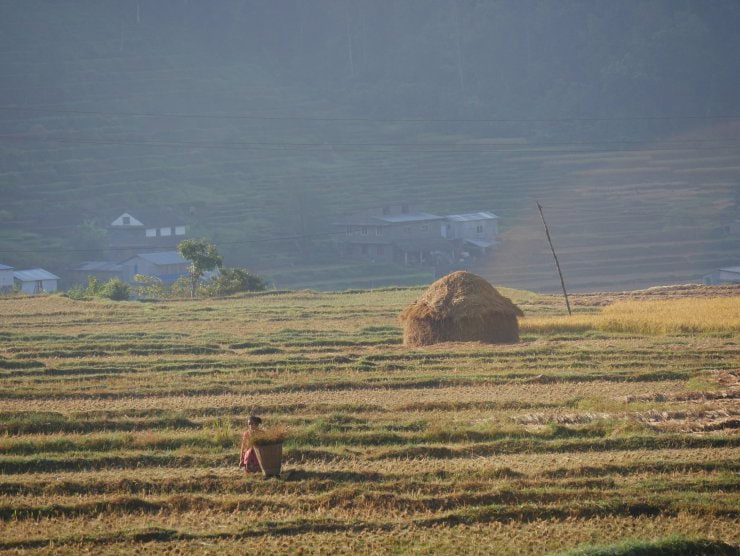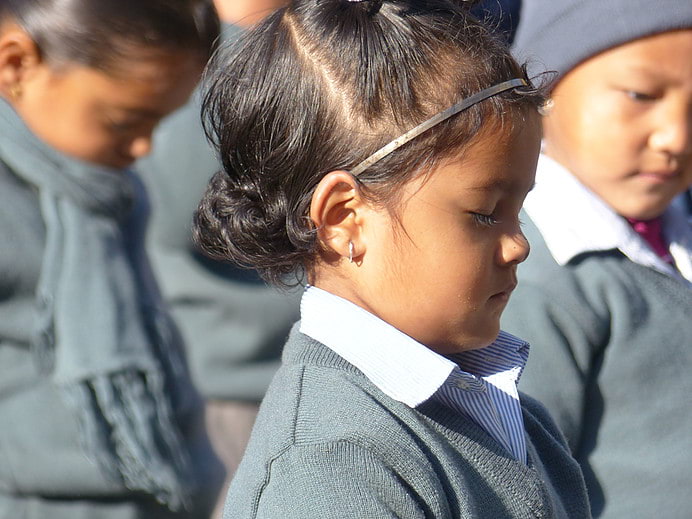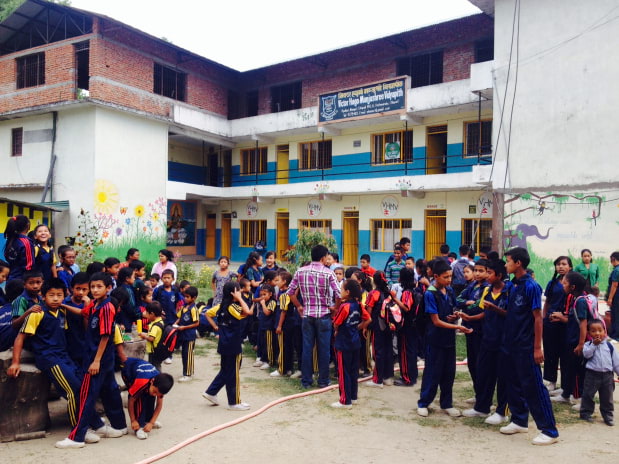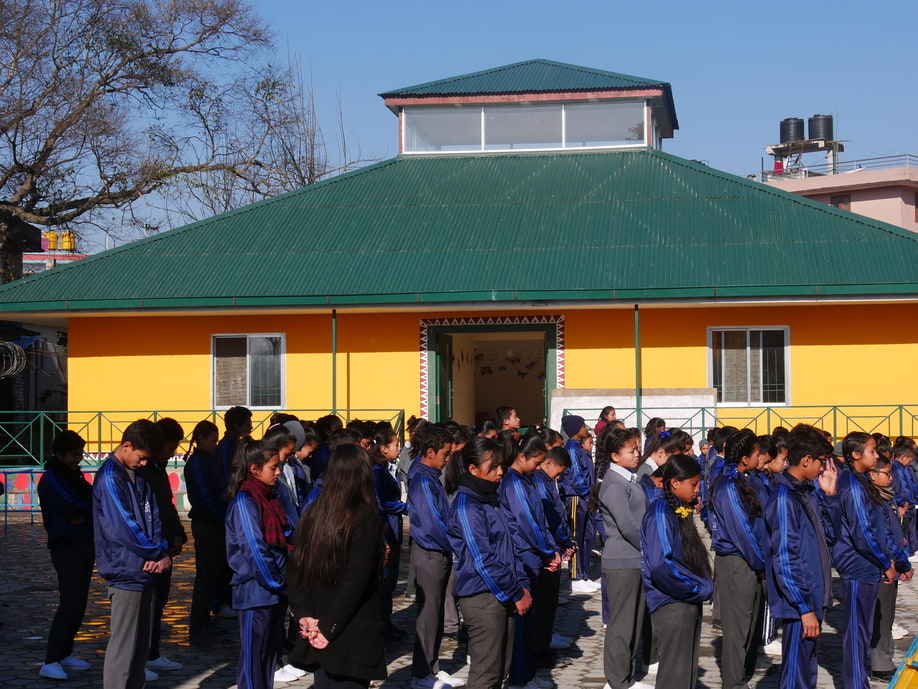The situation in Nepal
Divided between the Himalayas and the jungle, Nepal constitutes one of the poorest countries in Asia. Currently experiencing a major economic crisis, the country is still severely affected by political instability and corruption.
25th April 2015 - An earthquake with a magnitude of 7.8 on the Richter scale strikes the country. Nepal finds itself scattered and destroyed.
The country has progressively been reconstructing itself, despite the profound impact the earthquake has had on the urban landscape.


An education that is neither free nor compulsory
The Nepalese education system is still struggling to educate future generations.
Differing from the English and French education systems, Nepalese students pass an educational certificate equivalent to the high school diploma at the end of grade 10, when they are only 16 years old. Because of their young age, they then enter Higher Secondary Levels, consisting of two more years of study before beginning university.
State schools, often under-equipped and with poorly qualified teachers, have only a 30% success rate in the certificate at the end of grade 10. Teaching in these schools is based on authority and learning by heart, which leaves no room for the development of open-mindedness and social values.
In response to this, many private schools have been established. Although they achieve better results, the school fees are sometimes exorbitant which does not allow equal chances and opportunities among children. Moreover, this encourages work abroad, at the expense of Nepalese society.
"For a better world"
Once qualified in France and having returned to Nepal, Pramod Khakurel and his wife Saru decided to solve this problem.
After several attempts, together with Tristan Lecomte, they found the Victor Hugo Manjushree Vidyapith school in , in the village of Chapali. Their objective: to offer a quality education that is accessible to all.
Victor Hugo, a famous French writer, actively engaged against poverty and for education, embodies all the school values.
Manjushree represents wisdom and knowledge in Hindu and Buddhist tradition and culture.
Vidyapith, a Sanskrit word, translates to "temple of education".
The school has, therefore, adopted this name as a reminder of its mission and its values. It is a sanctuary for learning open to all, regardless of ethnic or social origins, where students are given the necessary tools to become responsible and ethical actors of the Nepalese society of tomorrow.


The school's infrastructures
The school has been developing itself for several years now.
Today, amongst its infrastructures, the school has an art room, a library, a science room equipped with microscopes and an IT room with twenty or so computers.
A building has also been constructed to welcome pre-school and allow the children to evolve in an innovative environment.
Finally, the school disposes of a garden with a vegetable patch, a canteen and a boarding school, offering the students a pleasant setting that is favourable for their studies.